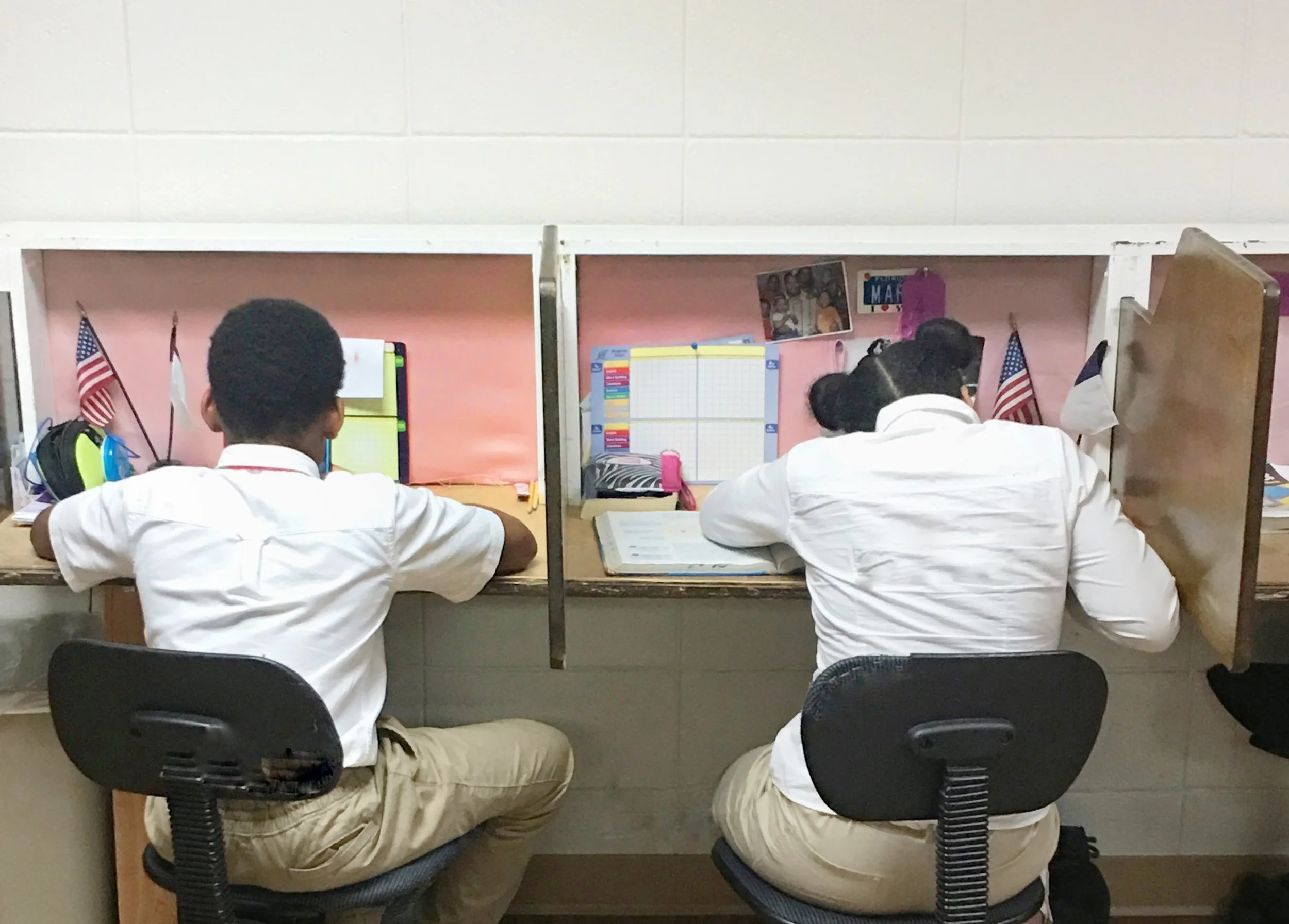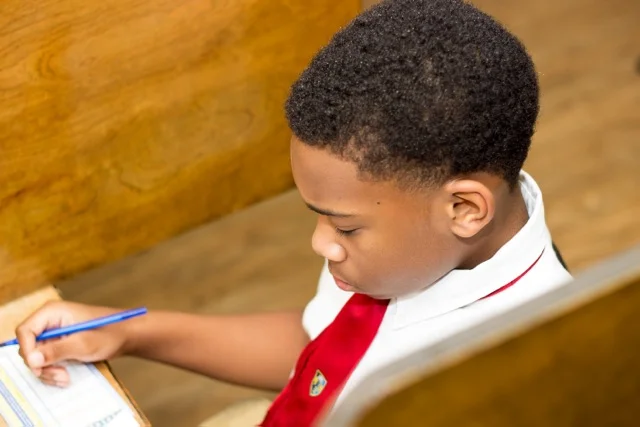Individualized Learning Plans
Whether your child's learning style allows them to grasp concepts quickly or they typically need additional instruction, our curriculum allows students to learn based on assessment. This is individualization, making it possible for each student to master the subject matter before moving on.
Solid Foundation thrives on individuality. Along with our parents, we are committed to discovering each student’s unique way of learning in order to create future success for them. Instruction is personalized to complement individual learning styles while addressing individual student needs and helping each student understand their learning process. The curriculum we use is designed to reach students within each learning modality by including auditory, kinesthetic, and visual activities. Our day is structured by using whole group instruction, peer tutoring, partnering, groups, and individualization.
At Solid Foundation, we utilize a digital curriculum for students in grades 3 through grade 12. This Web-based curriculum can be accessed through any Internet connection and features 3-D animation, video clips, and other exciting multimedia. This Christian based curriculum is customized by our teachers to fit each student's individual learning needs.
Unlike traditional textbook curriculums, our digital curriculum has a diverse, vibrant mix of entertaining lessons, assignments, and quizzes. Fun-filled lessons are created to captivate students' attention and engage them in learning. Interactive learning games, web links, and off-computer projects create opportunities for in-depth study.
Our younger students in kindergarten through grade 2 learn using the Abeka curriculum, which teaches from a spiral approach meaning we build from the simple concept to the more complex to establish a solid foundation of learning. While learning, there is frequent review and application using auditory, visual, and kinesthetic methods to ensure different styles of learning are covered.
Students using the program continue to demonstrate academic improvement. One reason that students demonstrate academic improvement is because they take responsibility for their own learning and are highly encouraged to think. One of the challenges that we have found is that most students do not want to think on their own. This thought process requirement makes transitioning to this curriculum from another curriculum challenging. Once students figure out that they have to think and begin to take responsibility for their learning, the results are improved academic performance.
Our staff members have been trained to ensure that every child receives individualized instruction according to their performance level. We have found this program to have a great impact on the lives of young people. Our curriculum, with its emphasis on Christian values and principles that lead to Godly attitudes and proper conduct, totally integrates the academic and spiritual training of home and church. The curriculum is non-denominational and provides a theistic course of study that teaches that the Bible is the accurate Word of God and is important to use when making decisions.







Social Emotional Learning
Building Character on Every Level
Today, we are finding that many of today's graduates are graduating with good grades, bad grades, and absolutely no morals. Schools are teaching students how to take tests, but are not focusing enough on how to make good sound decisions that will keep them out of jail. While no educational program can guarantee that your child will make the decision to stay out of jail as well as other life changing decisions, we continuously educate, and inform your child that they are only one decision away from making a decision that can completely change their life forever. This is why values and concepts considered foundational to relationships and productive living are conveyed throughout the curriculum in such a way as to become life-shaping influences. Character traits like kindness, loyalty, and honesty are taught within the curriculum. The academic curriculum includes the core area subjects of math, language arts, social studies, and science, while biblical morals & principles are woven in each lesson.
Accountability
We incorporate social emotional development in order to build self confidence and social skills, in addition to problem solving and critical thinking skills in our students. We encourage students to not only focus on academics, but also learn how to be accountable for their actions. We emphasize the importance of being accountable and making good decisions.